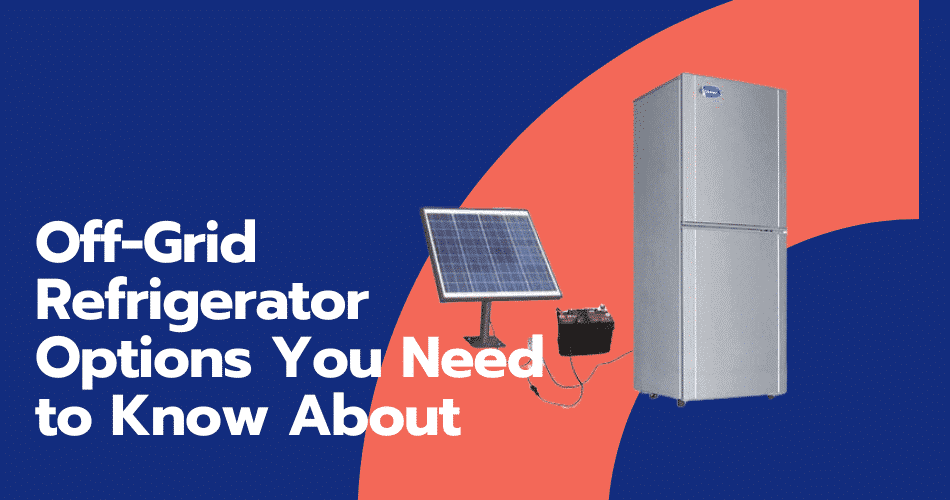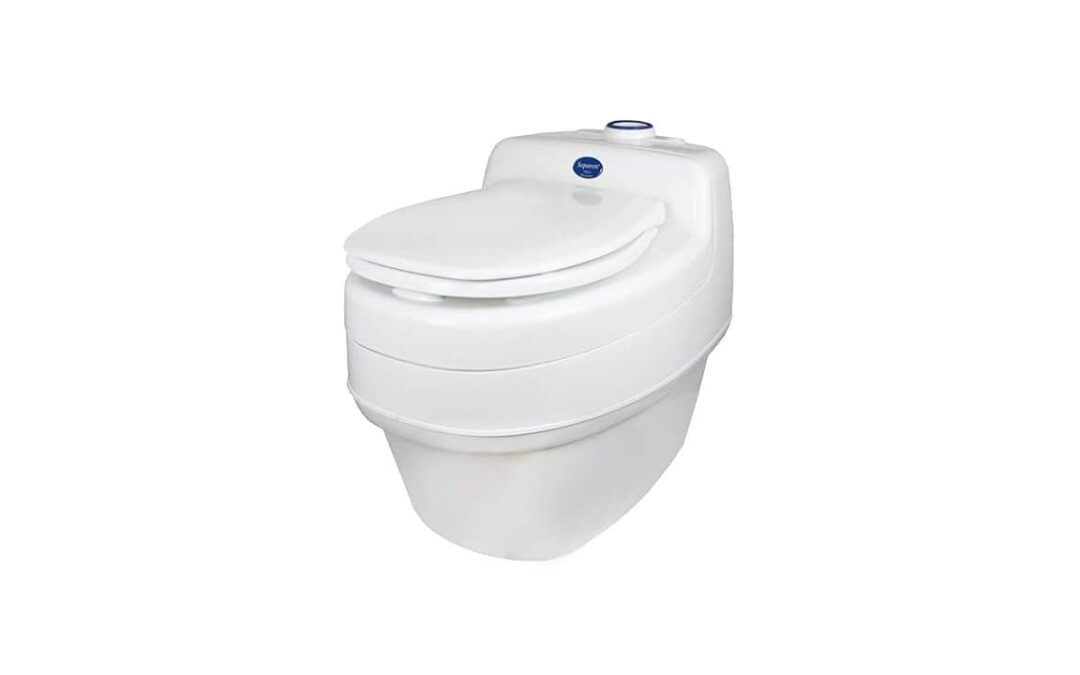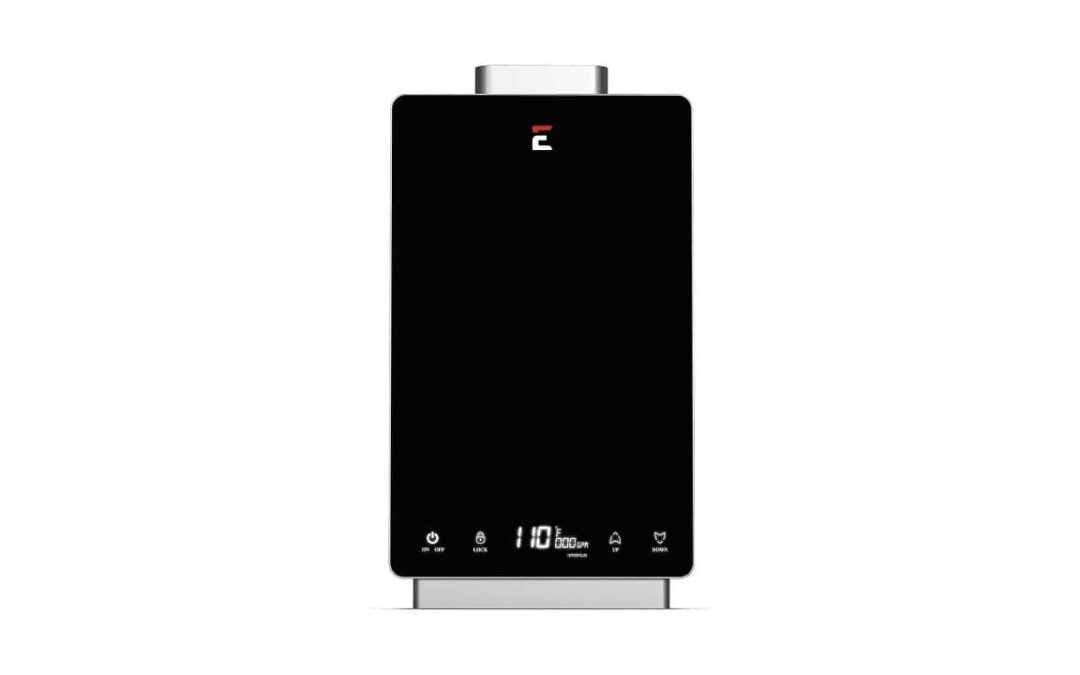Refrigerators are refrigerators, right? For people living off-grid though, choosing a refrigerator that works for their situation is a serious task that shouldn’t be overlooked.
You have to balance the initial costs with efficiency, reliability, and power source.
The last thing you want is a fridge full of food going bad because you didn’t produce enough power for the week.
We’ll cover some of the most important factors to consider when comparing different off-grid refrigerators and explain the costs and benefits of popular the following 4 most popular off-grid refrigeration solutions:
- Solar-powered refrigerators
- Thermoelectric coolers
- Propane-powered refrigerators
- Iceboxes
**Note** If you are looking to purchase off-grid refrigerators, check out our comprehensive buying guides below:
1. The Top Propane Refrigerators Of 2020 [Review & Buying Guide]
2. Best Off-Grid Solar Refrigerators In 2020
3. Best Thermoelectric Coolers Reviewed & Tested [Buying Guide]
Off-Grid Refrigerators: Key Factors to Consider
Simply put, an off-grid refrigerator is one designed to run either without electrical power or using substantially reduced power. There are several different ways they achieve this.
Some of the most common features among off-grid refrigerators include:
- Alternative power sources
- Highly efficient cooling methods
- Thick insulation
- Freezerless refrigerators and fridge/freezer arrangement
All of these features focus on one thing: lowering energy use.
In the past, propane refrigerators were your only option.
They require zero power to operate and can keep food and medications cooled to a safe temperature, as long as the fuel holds out.
However, with advances in both solar power generation and refrigerator design, you have more options today than ever before.
You can get high-quality solar refrigerators, propane refrigerators, thermoelectric refrigerators, and even highly insulative ice boxes.
When you’re choosing the best off-grid refrigerator for your needs, it’s important to consider several factors.
We go over them in detail below.
Available Power
Most important of all is how much power you can allocate for refrigeration.
If you have a comprehensive solar power system with ample battery storage, you have a lot more options available.
With large enough setups, you can even get away with using a regular high-efficiency refrigerator/freezer combo.
If you have zero power available, then you’re limited to iceboxes/coolers or propane refrigerators. Either of these can keep food cold without the use of any electricity at all.
For you are like most people living off the grid, your energy availability falls somewhere in the middle, making thermoelectric coolers and solar-powered refrigerators great potential options.
When comparing different electrically powered refrigerators, look for the EnergyStar or similar label.
Beneath their rating will display an average annual kWh usage. This gives you a great idea of how much power you’ll need monthly.
Sizing
This one comes down to the space you have available in your home and the amount of food you need to keep chilled.
You can find off-grid refrigerators in every size from your compact dorm-style fridge, all the way up to large chest fridges and freezers.
Compare this to how much power you have available, to find out what types of fridges will work.
Durability, Longevity, and Ease of Maintenance
You may have noticed of late that durable goods aren’t quite as durable as they once were. The off-grid fridge you choose should be able to stand up to regular 24/7 usage without issues.
It should also be relatively easy to maintain and repair. The last thing you want is to find out you have to wait days or weeks for a specialist repair tech to come and get your fridge working again for minor issues.
Price
Last but not least, you’re going to have to consider the price of your off-grid refrigerator, which can range anywhere from $50 for an icebox to over $2000 for a high-quality solar-powered refrigerator.
If this sounds like a huge price range, it is.
But don’t worry. We will go over each option in detail below so that you can find the right choice for your budget and needs.
So let’s dive into the different options.
Best Off Grid Refrigerator Options
DC/Solar Refrigerators
- Energy Efficiency: As low as 5 kW of power per month to operate
- Price Range: $1,000+, with higher-end models easily approaching $2,000
- Size: Full range of refrigerator sizes, from dorm mini-fridges to large chest and upright refrigerators
- Best For: Off-grid homes with comprehensive solar systems, ample battery backup, and consistently available sunlight
Solar refrigerators are a relative newcomer to the off-grid refrigerator scene. They’ve only really become a viable option over the last decade as solar cell and battery efficiency has skyrocketed.
They work on the same principles as traditional refrigerators but offer substantially higher efficiency rates.
This is achieved through a combination of greater insulation and more efficient compressor systems.

There are both AC and DC-powered solar refrigerators available. Depending on the type of solar system you install and what type of inverter you have, there are downsides and benefits to each.
DC systems can draw power directly from your battery storage bank. This allows you to avoid the conversion loss that comes from using a powerful inverter.
The biggest downside is that DC refrigerators are generally significantly more expensive than AC ones.
AC refrigerators run on traditional 120/240 volt AC power.
For a solar refrigerator, you’ll need a powerful pure sine wave inverter to safely run them.
If you try to save money with a modified sine wave inverter, there’s a very good chance you’ll seriously damage your expensive new refrigerator.
The biggest upside to an AC refrigerator is the substantially increased choices you’ll have.
There are far more AC fridges being made than there are DC ones.
With advances in the efficiency of traditional AC refrigerators, you can get a usable model for off-grid solar if you have a big enough battery bank.
Pros
- Relatively low power draw on a solar system
- Offers both refrigerators and freezers with high efficiency
- Full range of refrigerator sizes available
Cons
- If the sun doesn’t shine, your fridge will eventually run out of power
- Expensive
- Repairs can be more complicated and expensive to carry out
- Environmental temperatures affect how much power solar refrigerators draw
- Require pure sine wave inverter or direct DC connection
Check out our buying guide for the top solar refrigerators of 2020.
Thermoelectric Refrigerators
- Energy Efficiency: 2,000 to 3,000 kW per month
- Price Range: Generally well under $200, with some models available for as low as $50
- Size: Quite small, think a wine cooler or dorm-size mini fridge
- Best For: People who need very small scale refrigeration in cooler climates
Thermoelectric refrigerators are a type of compressor-less refrigeration. They rely on the Peltier effect to function and use relatively little power.
In simpler terms, when you run electricity between two different conductive materials, there’s a temperature difference.
Modern thermoelectric refrigerators use a pair of plates that are linked by a large number of these connectors.
The benefits of thermoelectric cooling are their low cost, durability, and efficient operation on a very small scale.
Other than a basic plastic cooler, it’s hard to find a cheaper option than a thermoelectric refrigerator.
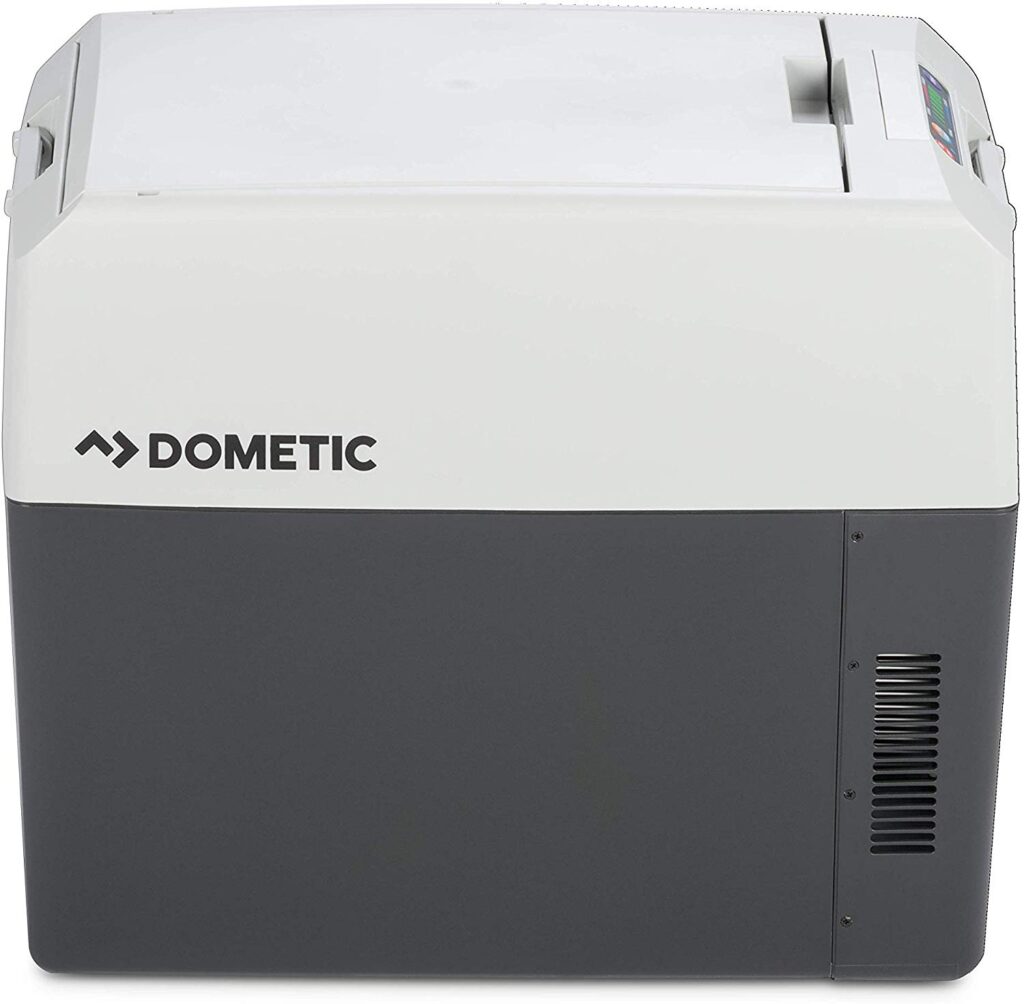
Their simple conductive cooling system is also one of the easiest to maintain.
It has no moving parts and can last for decades of regular use.
When using a thermoelectric refrigerator on the scale of a mini-fridge, they can match or even beat the efficiency of solar refrigerators.
The downsides are their low overall cooling capability and inability to scale up in size. Simply put, most thermoelectric coolers can’t cool things down more than about 30-40 degrees below ambient temperatures.
If it’s warmer than 80 degrees, you won’t be able to keep food at safe storage temperatures.
They also rapidly lose out in efficiency as they get larger. Anything over mini fridge size will use substantially more power for less cooling capability than a solar refrigerator.
Pros
- No moving parts to break down, providing great durability and longevity
- Energy-efficient at a small scale
- Very inexpensive
Cons
- Rapidly lose efficiently as they get larger
- Can’t lower temperatures by more than 30-40 degrees
- Require constant power supply
Check out our buying guide for the top 5 thermoelectric coolers on the market today
Propane Refrigerators
- Energy Efficiency: Use only 50-100 gallons of propane per year, about $100 to $200 on average
- Price Range: Very small models start at around $500, with many models running over $2,000
- Size: Available in a full range of sizes
- Best For: Off-grid dwellers without significant solar power systems or with concerns about longer periods without substantial sunlight
Propane refrigerators have been the gold standard for those living either in an RV or off the grid. They rely on a system of sealed tubes filled with a solution of ammonia, hydrogen, and water.
A propane flame causes this solution to boil and captures the gas formed in the top of the tube system. This creates a change in pressure that pulls heat from the inside of the refrigerator.
Propane refrigerators operate without any moving parts. They don’t rely on a compressor or have any circulating fans. This makes them extremely simple to operate and gives them excellent longevity.
Because they run entirely on propane, they’ll work just fine even if the sun doesn’t shine for an extended period.
In areas like Alaska or Northern Canada, this is a huge benefit.
Propane itself is pretty inexpensive on average and widely available. You can have a 250-gallon tank, easily enough to run a fridge for over a year, installed at your home for a very affordable price.
The biggest downside to propane refrigerators is their cost. They’re at least as expensive as high-quality solar refrigerators, with many larger models going noticeably higher.
Pros
- Run without any power
- Relatively inexpensive to operate
- Available in a variety of sizes, including fridge/freezer combos
- Work fine even when the sun doesn’t shine
- Totally off-grid
- Nearly silent
Cons
- Expensive upfront cost
- Requires propane storage
Check out our buying guide for the top 5 propane refrigerators
Ice Boxes/Coolers
- Energy Efficiency: N/A
- Price Range: $50 – $1,000
- Size: Small to very large
- Best For: People who travel in their home or don’t have access to electricity or propane (and have access to ice)
Iceboxes are one of the oldest ways people have kept their food chilled. They were developed in the mid 19th century and improved steadily until the advent of modern electrical refrigeration.
They can take the form of a traditional icebox, like our forefathers used, or a modern highly insulated cooler.
These are both able to keep food chilled down to safe temperatures for days to weeks on end with a single fill of ice or ice blocks.
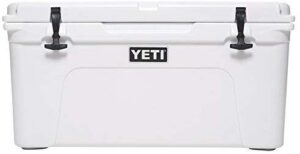
The benefits of this arrangement are pretty obvious. They require no power or propane, they’re capable of keeping food at a safe temperature, and they’re affordable compared to most other options.
If you live in a colder climate, you can actually compress your own ice blocks from the snow. This further increases your savings.
There are some downsides though.
It can be really inconvenient to regularly purchase ice.
You also have to drain the meltwater on a consistent basis and seal all your food very well.
Anything that isn’t properly sealed will rapidly become waterlogged.
You also need to do a good deep clean/sanitization regularly to prevent bacteria from growing inside.
Pros
- Uses no power whatsoever
- Available as either a traditional ice box or a modern highly insulated cooler
- Can be used with dry ice for frozen goods or ice/ice blocks for refrigerated goods
- Modern ice boxes and coolers can keep ice for days to weeks at a time
Cons
- Requires regular purchases of ice
- Must be drained of melted water
- Can lead to waterlogged food if not careful
- Very hands-on in maintenance and upkeep
Important Points to Remember
The most important things to keep in mind when choosing an off-grid refrigerator are your available power/fuel, the amount of capacity you need, and the size space you can spare.
Power is almost always going to be the biggest limiting factor. If you don’t have enough power to operate your refrigerator 24/7 you’re going to need to choose something smaller or with a different power source.
If you are looking for the best way to power your home, you’ll want to check out our awesome article on the topic here.
Fitting it into your home can be a challenge, but usually not as big a one as fitting your food into your fridge. Make sure you’re realistic about how much fridge space you need on a weekly basis before you purchase an off-grid model.

